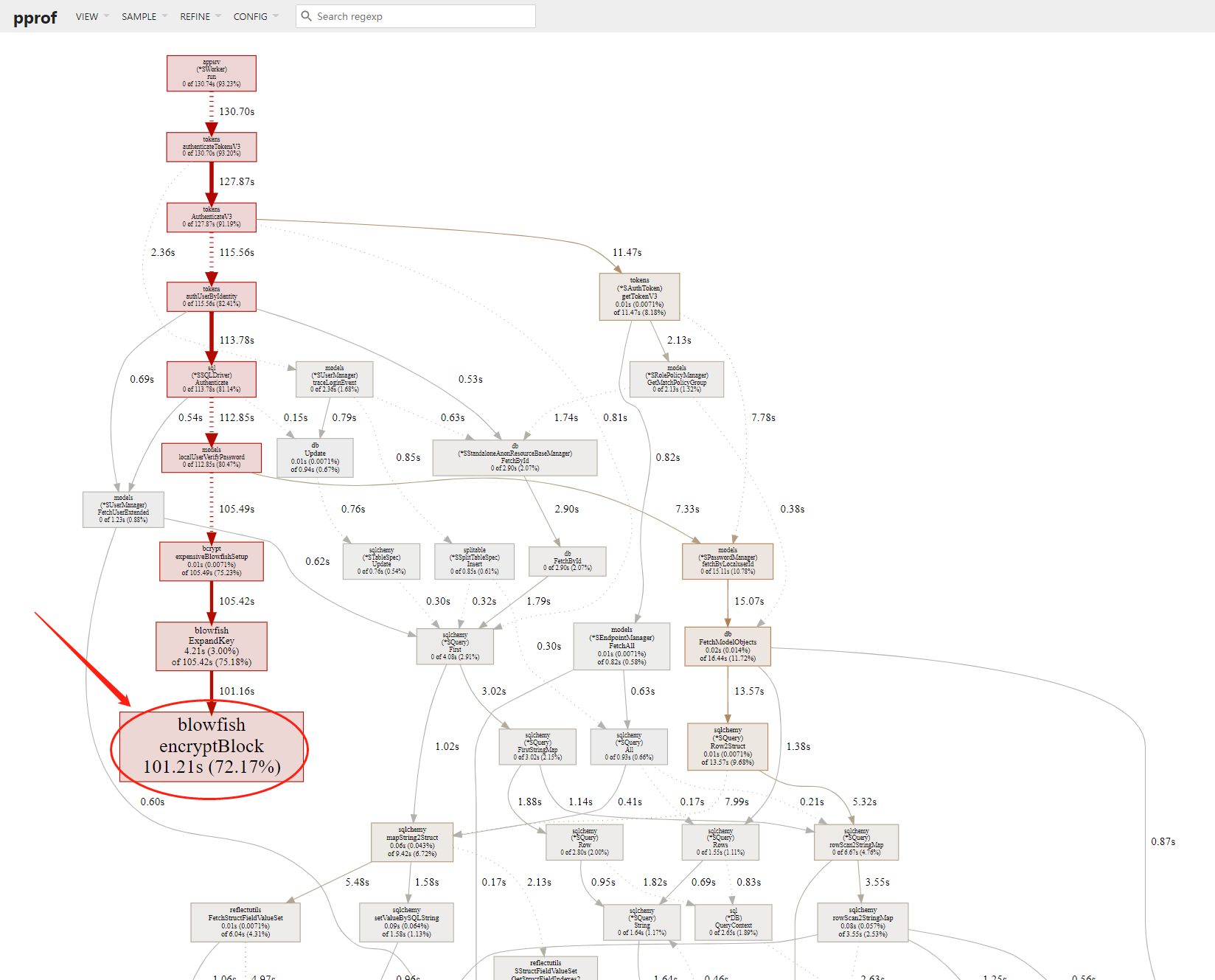问题分析:为什么keystone的本地用户认证接口压测性能很差?
· 2 min read
有用户反馈keystone认证本地用户的接口性能很差,因此做了调研。
首先使用ab(apache benchmark)模拟用户认证,调用命令行如下:
ab -n 2000 -c 100 -p ~/auth_body.json -T 'application/json' http://192.168.1.248:5000/v3/auth/tokens
执行以上脚本过程中,采集keystone的pprof的profile数据:
wget http://192.168.1.248:5000/debug/pprof/profile
然后把profile数据文件拷贝到本地,用本地go tool打开一个http服务,查看profile的内容。
go tool pprof -http=0.0.0.0:8081 ~/profile
用浏览打开看,得到如下的调用图:

发现整个profile时间约130秒,调用blowfish encryptBlock的时间花了约101秒。查看代码发现这个是密码校验调用的方法bcrypt.CompareHashAndPassword。也就是说,70%的时间都花在验证本地用户的密码上了。
为什么这个bcrypt.CompareHashAndPassword方法这么慢呢?搜索google发现这个问答:
其中有一段文字:
Besides incorporating a salt to protect against rainbow table attacks, bcrypt is an adaptive function: over time, the iteration count can be increased to make it slower, so it remains resistant to brute-force search attacks even with increasing computation power.
因此,采用bcrypt加密用户密码后,为了防止密码被暴力破解,用户认证接口的校验速度是故意地越压越慢的,性能必然不会好。
